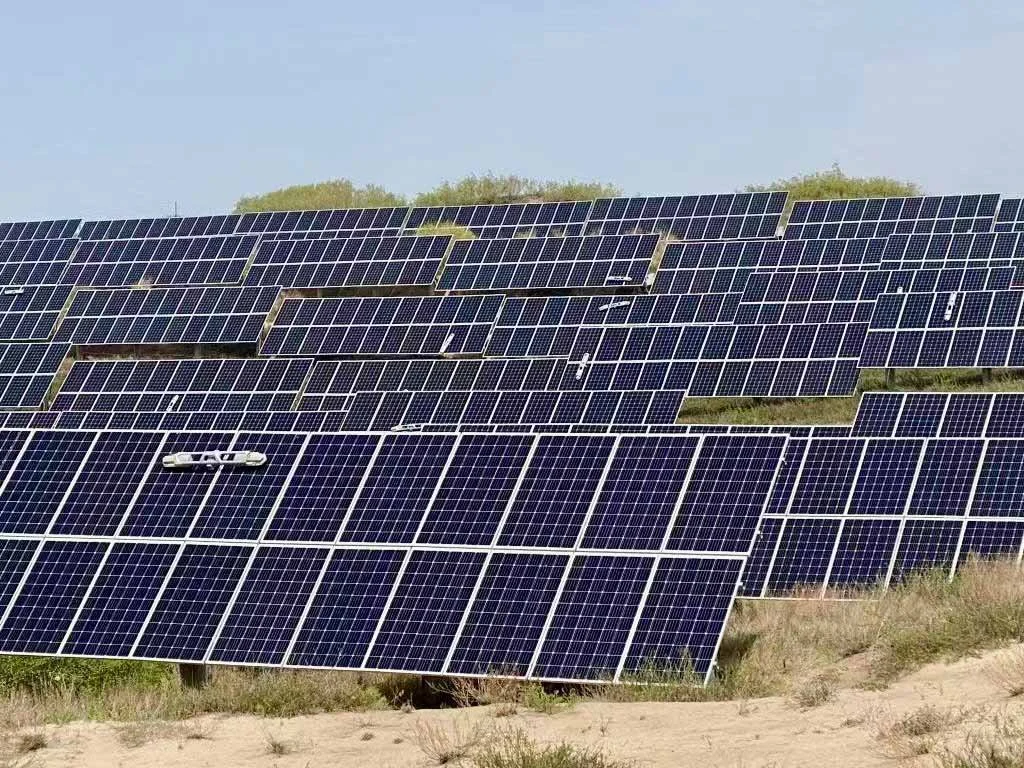Effects of Solar Panel Cleaning on Energy Efficiency
Solar panels are a significant investment in renewable energy, offering long-term savings and sustainability. However, maintaining their efficiency requires more than just installation—it demands consistent care. Over time, dust, dirt, and debris accumulate on panels, reducing their ability to absorb sunlight effectively. This article delves into the effects of solar panel cleaning on energy efficiency, providing insights, statistics, and tips to optimize performance.
Why Clean Solar Panels?
Solar panels work by converting sunlight into electricity. When dirt and debris block sunlight, the panel's efficiency drops. Studies show that dirty panels can lose anywhere from 15% to 25% efficiency, depending on the location and environmental conditions.
Key Factors Affecting Efficiency:
Dust and Dirt: Common in urban and rural areas, reducing sunlight absorption.
Bird Droppings: Creates shadowing that significantly impacts energy output.
Pollen and Leaves: Seasonal debris that accumulates over time.
Industrial Pollution: A major issue near factories or highways.
Statistics: The Impact of Cleaning on Efficiency
Research highlights the significant benefits of regular cleaning:
A study by the National Renewable Energy Laboratory (NREL) found that cleaning solar panels in high-dust areas can increase efficiency by up to 35%.
In regions with heavy bird activity, regular cleaning improved performance by 20-25%.
According to Solar Power World, panels cleaned twice annually can maintain up to 95% of their rated efficiency.
Energy Savings from Regular Cleaning
Regular cleaning not only ensures better energy output but also:
Maximizes Return on Investment (ROI): Clean panels generate more energy, reducing reliance on grid power.
Extends Panel Lifespan: Prevents issues like hot spots caused by dirt accumulation.
Increases System Reliability: Maintains consistent energy production, crucial for commercial installations.
Methods of Solar Panel Cleaning
While cleaning is essential, the method you choose can make all the difference. Here are common cleaning options:
1. Manual Cleaning
Using water, soap, and brushes, manual cleaning is labor-intensive and time-consuming. It can also pose safety risks for rooftop installations.
2. Wet Cleaning
This method uses water sprays or pressure washers, which are effective but wasteful. Wet cleaning may also leave mineral residue, reducing panel efficiency.
3. Robotic Cleaning
Advanced solutions like IFBOT’s solar panel cleaning robots offer a waterless, efficient, and eco-friendly approach. Robotic cleaning ensures consistent performance without the risks associated with manual methods.
How Robotic Cleaning Boosts Energy Efficiency
Robotic solutions like IFBOT X3 are revolutionizing solar panel maintenance with the following advantages:
Precision Cleaning: Removes even the smallest particles without damaging panels.
Waterless Technology: Ideal for regions with water scarcity, reducing environmental impact.
Cost-Effective: Cuts down on labor and water costs while maximizing energy production.
Consistent Performance: Unlike manual cleaning, robots provide uniform results across large installations.
Environmental Benefits of Robotic Cleaning
Sustainability is a core principle of solar energy, and robotic cleaning aligns with this ethos:
Reduces Water Waste: Traditional wet cleaning methods use thousands of liters of water per session, whereas robotic cleaning is entirely waterless.
Minimizes Carbon Footprint: Efficient panels reduce the need for grid electricity, lowering overall carbon emissions.
Supports Sustainable Maintenance: Automated systems require less human intervention, ensuring eco-friendly operations.
Who Benefits Most from Solar Panel Cleaning?
Residential Users: Rooftop panels prone to dust and bird droppings benefit from regular cleaning for consistent energy savings.
Commercial Installations: Large-scale solar farms see significant ROI from automated cleaning due to their extensive energy output.
Regions with High Dust or Pollution: Areas with frequent storms, industrial pollution, or agricultural activities require frequent cleaning to maintain efficiency.
The IFBOT Advantage
Choosing IFBOT solar panel cleaning robots ensures your panels remain efficient, safe, and eco-friendly. Here’s why IFBOT stands out:
Designed for All Terrains: Whether on sloped rooftops or large solar farms, IFBOT X3 adapts to various environments.
Effortless Maintenance: With its lightweight design, IFBOT X3 is easy to deploy and manage.
Eco-Friendly Technology: Waterless cleaning ensures sustainability without compromising performance.
Proven Results: Our customers report consistent energy production improvements of 20-30% after implementing robotic cleaning solutions.
Conclusion
Regular solar panel cleaning is essential to maintain efficiency, extend lifespan, and maximize ROI. The choice of cleaning method plays a crucial role in ensuring optimal performance. While manual and wet cleaning have their place, robotic solutions like IFBOT X3 offer a sustainable, efficient, and cost-effective alternative.
Don’t let dirt and debris hold your solar panels back. With the right maintenance, you can harness the full potential of your investment.
Contact Us Today!
Ready to take the next step in solar panel maintenance? Contact us to learn more about IFBOT’s innovative cleaning solutions and how we can help you achieve peak energy efficiency.

